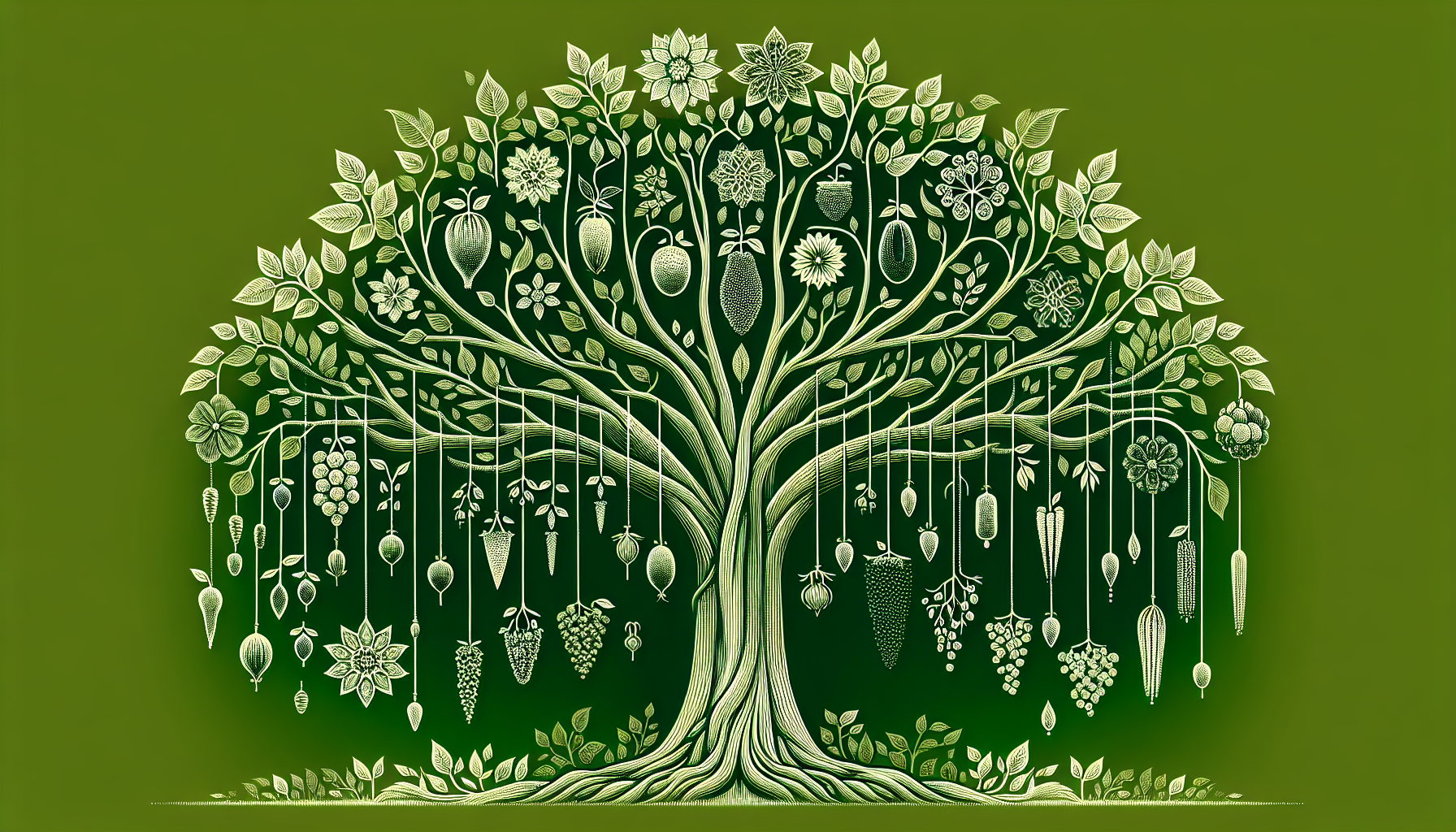Climate and Coffee: The Brewing Crisis

Coffee thrives in specific climatic conditions, predominantly found in the 'bean belt,' a region that spans the tropics. However, the delicate balance required for optimal coffee growth is being disrupted by rising temperatures, erratic rainfall, and an increase in pests and diseases. According to the International Coffee Organization, coffee yields could decline by as much as 50% in certain regions by 2050 if current trends continue. Countries like Honduras and Guatemala are already experiencing the repercussions of climate change, where coffee leaf rust—a devastating fungal disease—has ravaged crops. The effects have been dire: farmers face economic instability, communities struggle with loss of livelihoods, and the once-thriving coffee economy risks collapse. For consumers, this translates to rising prices and a potential decrease in the quality of their favorite brews, altering the coffee experience that many have cherished for years.
Innovative Farming Practices: Adapting to Change
In light of these challenges, coffee farmers are increasingly turning to innovative practices to adapt and mitigate the effects of climate change. One promising approach is agroforestry, which integrates coffee cultivation with tree planting. This method offers shade to coffee plants, protecting them from extreme temperatures while also enhancing soil quality and promoting biodiversity. Additionally, it reduces the necessity for chemical fertilizers, creating a more sustainable farming system. Farmers are also exploring climate-resilient coffee varieties that can withstand higher temperatures and resist diseases. Research institutions and agricultural organizations are actively involved in developing these varieties, providing hope for sustaining coffee production amid climate challenges. For example, some farmers in Colombia have started cultivating a hybrid variety known as Castillo, which has shown resilience to coffee leaf rust and higher temperatures. Technology is playing a critical role in modern coffee farming as well. Precision agriculture tools—such as soil moisture sensors and climate forecasting apps—enable farmers to make informed decisions about irrigation and planting times. By optimizing resource use, these innovations help farmers maximize yield while minimizing environmental impact. These practices illustrate the resilience and adaptability of the coffee industry amid a changing climate.
The Role of Consumers and Global Collaboration
As climate change continues to threaten coffee production, consumers also have a crucial role to play in addressing the crisis. By choosing sustainably sourced coffee, consumers support farmers who adopt eco-friendly practices. Certifications such as Fair Trade and Rainforest Alliance ensure that coffee is produced in an environmentally and socially responsible manner. Such choices can empower farmers to invest in sustainable practices that enhance their resilience to climate change. Global collaboration is essential to tackle the challenges posed by climate change. Initiatives like the Coffee and Climate Project bring together farmers, researchers, and industry stakeholders to share knowledge and develop strategies for sustainable coffee production. By fostering a collaborative approach, the coffee industry can work toward a more resilient future. These partnerships can lead to innovations that not only benefit the coffee sector but also contribute to broader climate action goals.
The brewing crisis affecting coffee production due to climate change serves as a stark reminder of our world's interconnectedness. As coffee lovers, farmers, and consumers, we must recognize the importance of sustainable practices and support innovations that mitigate climate change's impacts. By making informed choices and advocating for responsible practices, we can help ensure that future generations continue to enjoy the rich flavors and cultural significance of coffee while safeguarding the livelihoods of those who grow it. The journey toward a sustainable coffee future may be challenging, but with collective action and awareness, we can navigate this brewing crisis together, ensuring that coffee's legacy endures.
Sustainable Agriculture Specialist
NGOs focused on agriculture, government agricultural departments, and private sustainability consultancies
Core Responsibilities
Develop and implement sustainable farming practices that enhance soil health and biodiversity in coffee production.
Collaborate with farmers to adopt agroforestry and organic farming methods that mitigate climate change impacts.
Conduct training sessions and workshops for farmers on sustainable practices and climate resilience.
Required Skills
Strong background in agronomy, environmental science, or a related field.
Experience with agroecological practices and knowledge of coffee cultivation.
Excellent communication and interpersonal skills for effective farmer engagement.
Coffee Quality Assurance Technician
Coffee roasters, quality control laboratories, and specialty coffee importers
Core Responsibilities
Evaluate coffee beans for quality and flavor profile through sensory analysis and laboratory testing.
Monitor and assess the impacts of climate change on coffee quality and advise farmers on best practices to maintain high standards.
Collaborate with producers to implement quality control measures throughout the supply chain.
Required Skills
Expertise in coffee cupping and sensory evaluation techniques.
Strong analytical skills and familiarity with laboratory equipment.
Understanding of agricultural practices and how they affect coffee quality.
Climate Resilience Research Scientist
Agricultural research institutions, universities, and NGOs focused on climate adaptation
Core Responsibilities
Conduct research on climate-resilient coffee varieties and their potential to withstand environmental stressors.
Analyze data on coffee production and climate trends to inform stakeholders about risks and adaptation strategies.
Collaborate with agricultural organizations and research institutions to advance sustainable coffee research.
Required Skills
PhD or advanced degree in plant science, environmental science, or a related field.
Proficiency in statistical analysis and research methodologies.
Strong communication skills for disseminating research findings to farmers and policymakers.
Agricultural Technology Consultant
Agtech startups, agricultural consulting firms, and NGOs promoting tech-driven solutions
Core Responsibilities
Advise coffee farmers on the implementation of precision agriculture technologies, including soil moisture sensors and climate forecasting tools.
Assess the effectiveness of technology in improving crop yield and resource efficiency.
Provide training on data interpretation and decision-making based on technological insights.
Required Skills
Background in agricultural engineering, technology, or environmental science.
Familiarity with current agricultural technologies and data analytics.
Strong problem-solving skills and the ability to work with diverse stakeholders.
Fair Trade Certification Officer
Fair Trade certification organizations, NGOs focused on ethical sourcing, and coffee cooperatives
Core Responsibilities
Evaluate and certify coffee producers for Fair Trade and other sustainability certifications, ensuring compliance with standards.
Conduct audits and assessments of production practices to support farmers in sustainable development.
Collaborate with certification bodies to enhance the visibility and reach of Fair Trade coffee.
Required Skills
Knowledge of Fair Trade principles and sustainable agriculture practices.
Strong analytical skills and attention to detail for auditing processes.
Excellent organizational and communication skills for liaising with farmers and stakeholders.


